
Max Baer, Jr.
RETURN TO INDEX |
U.S. Air Force Reserve |
American actor, screenwriter, producer, and director. Perhaps best
known for his role as
Jethro Bodine on
The
Beverly Hillbillies. He was the son of boxing champion
Max Baer. His first acting role was in Goldilocks and the Three
Bears at the Blackpool Pavilion in England in 1949. He made
appearances on television programs such
Maverick, Surfside
6, Hawaiian Eye,
Cheyenne and
77 Sunset Strip. Baer wrote and produced the drama
Macon County
Line (1974). It was the highest-grossing movie per dollar
invested at the time. Made for just US$110,000, it earned almost US$25
million at the box office. Baer also wrote, produced, and directed
the drama The Wild McCullochs (1975), and produced
Ode to Billy Joe (1976). Retired from acting, Baer has spent
the past two decades struggling to build his dream project on 24 acres
of land he owns in Carson Valley, Nev., a Hillbillies-themed casino and
theme park not far from his Lake Tahoe home.
Served in the late 1950s. Stationed at Gunter Air Force Base,
Montgomery, Alabama when he heard of his father's death. |
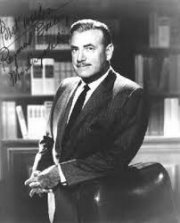
Raymond Bailey
RETURN TO INDEX |
U.S. Merchant Marine
 |
American
actor on
the
Broadway stage,
movies, and
television.
He is best known for his role as wealthy banker, Milburn Drysdale, in
the
television series
The
Beverly Hillbillies.
Served during WW2. |
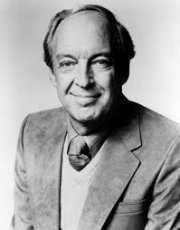
Conrad Bain
RETURN TO INDEX |
Canadian Army

 |
Canadian-American
actor. His television credits include a leading role as Phillip Drummond in the
sitcom
Diff'rent Strokes and as Dr. Arthur Harmon on
Maude.
Served during WW2. |
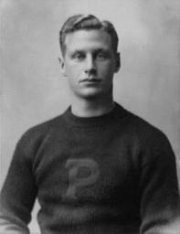
Hobey Baker
RETURN TO INDEX |
U.S. Army Air Service
 |
American amateur athlete of the early twentieth century. Regarded
as the first American star in ice hockey, he was also an accomplished
football player. Born into a prominent family from Philadelphia,
he enrolled at Princeton University in 1910 and excelled on both the
university's hockey and football teams, and later became a noted amateur
hockey player for the St. Nicholas Club in New York City. He was a
member of three national championship teams, for football in 1911 and
for hockey in 1912 and 1914, and helped the St. Nicholas Club win a
national amateur championship in 1915. Graduating from Princeton
in 1914, Baker worked for J.P. Morgan Bank until he enlisted in the
United States Army Air Service.
Served in WW1. He served with the 103rd and the 13th Aero
Squadrons before earning promotion to captain and commanding the 141st
Squadron. In December 1918 Baker died when he crashed a plane he
was test piloting, hours before he was to leave France and return to
America. |
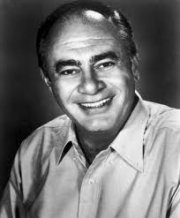
Martin Balsam
RETURN TO INDEX |
U.S. Army Air Forces
 |
American actor. He is known for his Oscar-winning role as "Arnold Burns"
in
A Thousand Clowns and his role as "Detective Milton Arbogast" in
Psycho. appeared in such films as
On the Waterfront (1954),
12 Angry Men (1957),
Time Limit (1957),
Breakfast at Tiffany's (1961),
The Carpetbaggers (1964),
Seven Days in May (1964),
The Anderson Tapes (1971),
Hombre (1967),
Catch-22 (1970),
Tora! Tora! Tora! (1970),
Little Big Man (1970),
The Taking of Pelham One Two Three (1974),
All the President's Men (1976), and
The Delta Force (1986). He also starred as Murray Klein on the
All in the Family spin-off
Archie Bunker's Place for two seasons (1979–1981).
Served in WW2. |
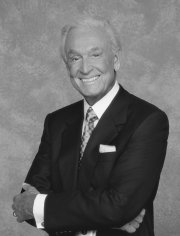
Bob Barker
RETURN TO INDEX |
U.S. Navy
 |
American television game show host. He is best known for
hosting CBS's
The Price Is Right from 1972 to 2007, making it the
longest-running daytime game show in North American television history,
and for hosting
Truth or
Consequences from 1956 to 1975.
Served in WW2 as a fighter
pilot. However, the war ended before he was assigned to a seagoing
squadron.
|
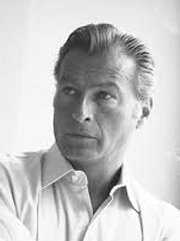
Lex Barker
RETURN TO INDEX |
U.S. Army


 |
American actor best known for playing
Tarzan of
the Apes and leading characters from Karl May's novels.
In February 1941, ten months before the attack on
Pearl Harbor, Barker
left his fledgling acting career and enlisted. He rose to the rank of major during the war. He was
wounded in action (in the head and leg) fighting in
Sicily and received the Purple Heart. Back in the U.S., Barker recuperated at an
Arkansas military hospital and was discharge from service. |
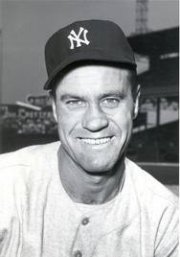
Hank Bauer
RETURN TO INDEX |
U.S. Marine Corps



 |
American right fielder and manager in Major League Baseball. He played
with the New York Yankees (1948 to 1959) and Kansas City Athletics (1960
to 1961); he batted and threw right-handed. He served as the
manager of the Athletics in both Kansas City (1961 to 1962) and in
Oakland (1969), as well as of the Baltimore Orioles (1964 to 1968),
becoming the winning manager of the 1966 World Series, four games to
none, over the Los Angeles Dodgers.
Served in WW2. Enlisted one month after the Japanese attack on
Pearl Harbor. While serving in the Pacific Theater, Bauer
contracted malaria on Guadalcanal, but he recovered from that well
enough to earn 11 campaign ribbons, two Bronze Stars and two Purple
Hearts (for being wounded in action) in 32 months of combat. Bauer
was wounded his second time during the
Battle of
Okinawa, when he was a lieutenant in command of a platoon of 64
Marines. Only six of the 64 Marines survived the Japanese
counterattack, and Bauer was wounded by shrapnel in his thigh. His
wounds were severe enough to send him all the way back to the U.S. to
recuperate. |
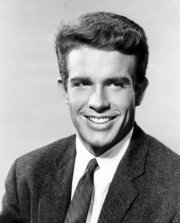
Warren Beatty
RETURN TO INDEX |
U.S. Air Force Reserve |
American actor, producer, screenwriter and director. He has won
four Golden Globe Awards including the Cecil B. DeMille Award.
Beatty's overall Academy Award nominations number 14: he received Best
Picture nominations for
Bonnie and Clyde,
Bugsy,
Reds and
Heaven Can Wait, received writing nominations for
Shampoo,
Reds,
Bulworth and
Heaven Can Wait, received
Best Director nominations for
Heaven Can Wait and
Reds, and has received Best Actor nominations for
Bonnie and Clyde,
Heaven Can Wait,
Reds and
Bugsy.
Under his original name of Henry W. Beaty, Warren Beatty enlisted in the
California
Air National Guard on February 11, 1960. On January 1, 1961, Beatty was discharged from the Air National Guard due to
physical disability. He was also simultaneously discharged from the
U.S. Air Force Reserve. He served on inactive duty only. |
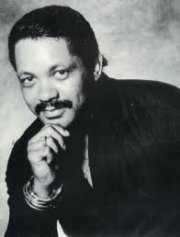
Archie Bell
RETURN TO INDEX |
U.S. Army


 |
American solo singer and former lead singer of
Archie
Bell & the Drells. Archie Bell became known around the world
for the hit that he had with the Drells, "Tighten Up". Since the
break up of the Drells in 1980, Archie Bell has pursued a solo career.
Bell later released one solo album (I Never Had It So Good - 1981) on
Beckett Records and continued to perform with The Drells off and on for
the next twenty years.
Drafted in 1967, and sent to Fort Polk, Louisiana for basic training.
Served in Vietnam where he was wounded in the leg and awarded the Purple
Heart. He was sent to Germany for hospitalization and recovery.
The Army was generous and let Archie tour with his group during the
summer of 1968. He was discharged on April 15, 1969. |
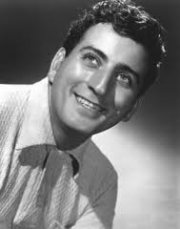
Tony Bennett
RETURN TO INDEX |
U.S. Army

 |
American singer of
popular music,
standards,
show
tunes, and
jazz.
Drafted into the service in
November 1944, during the final stages of
World War II. He did
basic training at
Fort Dix and
Fort Robinson as part of becoming an
infantry rifleman. Processed through the huge
Le Havre replacement depot, in January 1945, he was assigned as a
replacement infantryman to
255th Infantry Regiment of the
63rd Infantry Division, a unit filling in for the heavy losses
suffered in the
Battle of the
Bulge. He moved across
France
and into
Germany.
His
company saw bitter fighting in cold winter conditions, often
hunkering down in
foxholes as German
88 mm guns fired on them. At the end of March, they crossed
the
Rhine and entered
Germany, engaging in dangerous house-to-house, town-after-town fighting
to clean out German soldiers. He narrowly escaped death several
times. At the war's conclusion he was involved in the liberation
of a
Nazi concentration camp near
Landsberg. He stayed in Germany as part of the occupying
force, but was assigned to an informal Special Services band unit that
would entertain nearby American forces. |

Jack Benny
RETURN TO INDEX |
U.S. Navy
 |
American
comedian,
vaudevillian, and actor for
radio,
television,
and
film. Widely
recognized as one of the leading American entertainers of the 20th
century, Benny played the role of the comic penny-pinching miser,
insisting on remaining 39 years old on stage despite his actual age, and
often playing the violin badly.
Left show business briefly in
1917 to serve during WW1. |
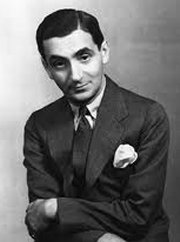
Irving Berlin
RETURN TO INDEX |
U.S. Army
 |
American composer and
lyricist, widely considered one of the greatest American songwriters in
history. He wrote hundreds of songs, many becoming major hits, which
made him "a legend" before he turned thirty. During his 60-year career
he wrote an estimated 1,500 songs, including the scores for 19 Broadway
shows and 18 Hollywood films, with his songs nominated eight times for
Academy Awards. Many songs became popular themes and anthems, including
Easter
Parade,
White
Christmas,
Happy
Holiday, This is the Army, Mr. Jones, and
There's
No Business Like Show Business. His Broadway musical and 1942
film, This is the Army, with Ronald Reagan, had Kate Smith singing
Berlin's God
Bless America which was first performed in 1938.
In 1917 Berlin was drafted into the army, and the news of his induction
became headline news: "Army Takes Berlin!" one paper read.
However, the army only wanted Berlin, now aged 30, to do what he knew
best: to write songs of patriotism. Hence, while stationed at Camp
Upton in New York, he composed an all-soldier musical revue titled
Yip
Yip Yaphank, written to be patriotic tribute to the Army. |
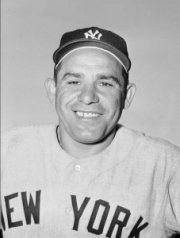
Yogi Berra
RETURN TO INDEX |
U.S. Navy

 |
American Major League Baseball
catcher, outfielder, and manager. He played almost his entire 19-year
baseball career (1946 to 1965) for the
New York Yankees. He was one of only four players to be named
the Most Valuable Player of the
American League three times and is one of only six managers to lead
both American and
National League teams to the
World Series. As a player, coach, or manager, Berra appeared
in 21 World Series. He was elected to the Baseball Hall of Fame in
1972.
Served in WW2. Join the Navy at 18 and was sent to Bainbridge,
Maryland for bootcamp. At Norfolk, Virginia he volunteered to serve on
amphibs. As a Gunners Mate he initially served on a 'rocket boat', a
36-foot vessel with 12 rockets on each side, 5 machine guns, all in
preparation for the Invasion of Normandy. On D-Day his boat was about
300 yards off the beach providing fire coverage. After ten days he
returned to USS Bayfield (P833). |
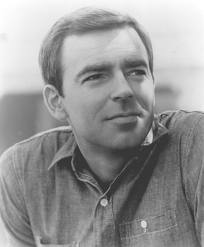
Ken Berry
RETURN TO INDEX |
U.S. Army

 |
American dancer, comedic
actor and singer.
He began on stage as a dancer and later starred in television
sitcoms. A favorite guest on
The Carol
Burnett Show in the 1970s, Berry was chosen to star in the
spin-off Mama's
Family, featuring the dysfunctional Harper clan. Berry called
his time on F Troop "two years of recess", and has referred to the
idyllic Mayberry as "America's 'Brigadoon'".
Served during the
Korean War. |
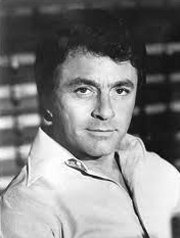
Bill Bixby
RETURN TO INDEX |
U.S. Marine Corps
 |
American
film and
television actor,
director, and frequent
game show
panelist. His
career spanned over three decades; he appeared on stage, in motion
pictures and
TV series. He is best known for his roles as Tim O'Hara on the
CBS
sitcom
My Favorite
Martian, Tom Corbett on the
ABC
comedy-drama
series
The Courtship of Eddie's Father, and Dr. David Banner on the CBS
drama series
The Incredible Hulk.
Dropped out of college and
joined the
United
States Marine Corps after being drafted into the
United States
Army during the
Korean War. Bixby served stateside duty in the Marines and was
honorably discharged. |
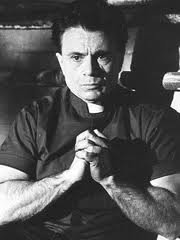
Robert Blake
RETURN TO INDEX |
U.S. Army |
American actor who starred in the film
In Cold Blood and the U.S.
television series
Baretta.
Joined the service in 1950. |
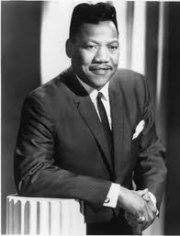
Bobby Bland
RETURN TO INDEX |
U.S. Army
 |
American singer of blues and
soul. He is an original member of The Beale Streeters and is
sometimes referred to as the "Lion of the Blues". Along with such
artists as Sam Cooke, Ray Charles, and Junior Parker, Bland developed a
sound that mixed gospel with the blues and R&B. He was inducted
into the Blues Hall of Fame in 1981, the Rock and Roll Hall of Fame in
1992, and received the Grammy Lifetime Achievement Award in 1997.
Served from 1952 to 1955. |
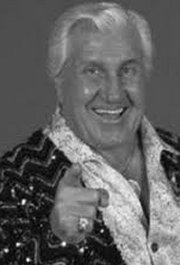
Freddie Blassie
RETURN TO INDEX |
U.S. Navy

 |
American professional
wrestling villain and manager, better known as "Classy" Freddie Blassie,
born in St. Louis, Missouri. He was a master at antagonizing the
crowd, and inspired legendary animosity. He was also a one-time NWA
Georgia Heavyweight Champion (later known as the NWA Wildside
Heavyweight Championship). Was also a 1 time NWA Southern Florida
Champion.
Served in WW2. Enlisted in the Navy and served in the Pacific
Theater for 42 months. The war was a trying time for his family
back home because of his parents' German heritage. They were often
accused of being unpatriotic. In addition, he married a Jewish
girl named Nettie Needles in California while on shore leave. He
achieved the rank of Petty Officer Second Class before he was
discharged. |
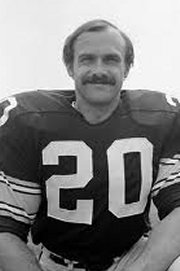
Rocky Bleier
RETURN TO INDEX |
U.S. Army



 |
American National Football
League halfback who played for the Pittsburgh Steelers in 1968 and from
1971 to 1980. In addition to being a great lead blocker, Bleier was the second of the
Steelers' rushing weapons, but was effective nonetheless at both blocking
and rushing. In 1976, both Harris and Bleier rushed for over 1,000 yards, making
this the second NFL team to accomplish
this feat, after
Mercury Morris and Larry
Csonka of the
1972 Miami Dolphins. Bleier played in the first four Steeler
Super Bowl victories, and
caught the touchdown pass from
Terry Bradshaw that
gave Pittsburgh a lead it would never surrender in
Super Bowl XIII. Bleier retired after the 1980 season with 3,865 rushing yards, 136 receptions
for 1,294 yards, and 25 touchdowns. At the time of his retirement, he was the
Steelers fourth all-time leading rusher.
Served in Vietnam. Was drafted in December 1968. He
volunteered for duty in the Vietnam War and shipped out in May 1969,
serving with the 196th Light Infantry Brigade. On August 20, while on
patrol in Heip Duc, Bleier was wounded in the left thigh by a rifle
bullet when his platoon was ambushed in a rice paddy. While down,
an enemy grenade landed nearby after bouncing off a fellow soldier,
sending shrapnel into his lower right leg. He was later awarded the
Purple Heart and the Bronze Star. His rank was Specialist 4. |
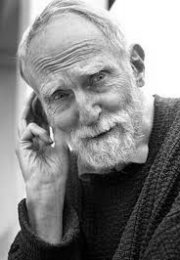
Roberts Blossom
RETURN TO INDEX |
U.S. Army

 |
American actor and poet.
He acted several theater roles in the 1950s, for which he won the Obie
Award four times. He landed his first film roles in the television
adaptation of the play
Our
Town (1959). In the thriller
Deranged (1974) he played the lead role of killer Ezra Cobb.
He also appeared in
The Great Gatsby (1974),
Close Encounters of the Third Kind (1977),
Escape from Alcatraz (1979),
Vision Quest (1985), and in
Home Alone (1990), as Marley, Kevin McCallister's reclusive,
unfairly stigmatized snow-shoveling neighbor. He retired from
acting in the late-1990s to pursue writing poetry.
Served in WW2 in the European Theater. |
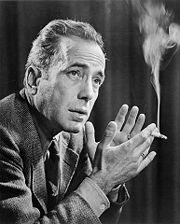
Humphrey Bogart
RETURN TO INDEX |
U.S. Navy
 |
American actor. He is widely regarded as a
cultural icon. The American Film Institute ranked Bogart as the
greatest male star in the history of American cinema. His
performance in
Casablanca raised him to the peak of his profession and, at the
same time, cemented his trademark film persona, that of the hard-boiled
cynic who ultimately shows his noble side. Other successes
followed, including
The African Queen (1951), for which he won his only
Academy Award. During a film career of almost thirty years, he
appeared in 75
feature films.
Enlisted in 1918.
Recorded as a model sailor who spent most of his months in the Navy
after the
Armistice
was signed, ferrying troops back from Europe. |
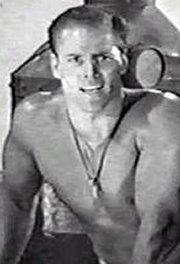
Cal Bolder
RETURN TO INDEX |
U.S. Marine Corps

 |
A bodybuilder who later
turned to acting, Bolder was known for his roles in really bad movies
and classic television series, but is best remembered for his role as
'Hank Tracy/Igor' in Jesse James Meets Frankenstein's Daughter in
1966. Bolder also appeared on the television programs Star Trek, Bonanza, Daniel Boone, Outlaws, and
Cimarron Strip.
Served in the Korean War. |
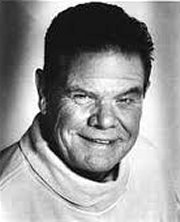
Tommy Bond
RETURN TO INDEX |
U.S. Navy
 |
American actor best
known for his work as a child actor for two different nonconsecutive
periods on Our Gang
(Little Rascals) comedies, and also for being the first actor to portray
the role of "Superman's pal" Jimmy Olsen on screen. Bond was hired
at Hal Roach Studios for the Our Gang series in the summer of 1931.
In late 1934, Bond left the series and returned to public school.
He later returned to Our Gang on a recurring basis late in 1936, when
Roach hired him to play "Butch", the neighborhood bully. After the
war Bond returned to acting, and appeared in a handful of
East Side Kids,
and Gas House Kids features alongside former on-screen rival Carl
Switzer. In the late 1940s, Bond became the first actor to portray cub
reporter Jimmy Olsen in two
Superman film
serials:
Superman (1948) and
Atom Man
vs. Superman (1950). He also appeared as Joey Pepper in
several installments of the
Five Little
Peppers serial. He worked at Channel 11, KTTV in Los Angeles
from the 1950s to the early 1970s. He then went to work for CBS
affiliate Channel 30 KFSN in Fresno from the early 1970s to 1991.
Bond also worked as a prop manager on
Rowan &
Martin's Laugh-In.
Served in WW2. |
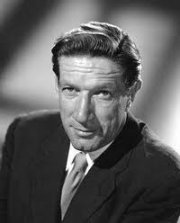
Richard Boone
RETURN TO INDEX |
U.S. Navy

 |
American actor who starred
in over 50 films and was notable for his roles in Westerns and for
starring in the TV series
Have Gun - Will Travel.
Joined in 1941. He
served on three ships in the Pacific Theater during WW2, seeing combat as an
aviation ordnanceman and gunner on TBM Avenger torpedo planes. |
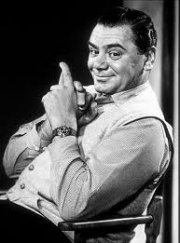
Ernest Borgnine
RETURN TO INDEX |
U.S. Navy


 |
American actor of television
and film. His career has spanned more than six decades. He was an
unconventional lead in many films of the 1950s, including his
Academy Award-winning
turn in the 1955 film
Marty. On television, he played Quinton McHale in the 1962 to 1966
series
McHale's
Navy and costarred in the mid-1980s action series
Airwolf in
addition to a wide variety of other roles. Borgnine earned an Emmy
nomination at age 92 for his work on the series
ER.
Served in WW2. Joined in 1935, after graduation
from James Hillhouse High School in New Haven, Connecticut. He was
discharged in 1941, but re-enlisted when the U.S. entered World WW2 and
served until 1945 (a total of ten years), reaching the rank of Gunner's
Mate 1st Class. He served aboard the destroyer
USS Lamberton (DD-119).
His military decorations included the American Campaign Medal, the Good
Conduct Medal, the American Defense Service Medal with Fleet Clasp, and
the World War II Victory Medal. |
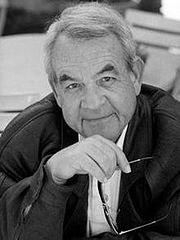
Tom Bosley
RETURN TO INDEX |
U.S. Navy
 |
American actor best known for portraying Howard Cunningham on the
long-running
ABC sitcom
Happy Days. His first motion picture role was in 1963, as the
would-be suitor of Natalie Wood in
Love with the Proper Stranger. Other films include
The
World of Henry Orient,
Divorce
American Style,
Yours, Mine and Ours,
Gus
and the
made-for-television
The Triangle Factory Fire Scandal. He also portrayed the
eponymous Father Frank Dowling on the TV mystery series,
Father
Dowling Mysteries.
Served in WW2. Joined in 1945 at age 17. Bosley was
remembered as having said: "I’m the only guy I know who went in as a
seaman and came out a seaman". |
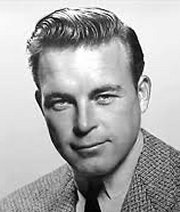
Scott Brady
RETURN TO INDEX |
U.S. Navy
 |
American film and television actor. He specialized in tough-guy
roles in films like
He Walked by
Night,
Canon City and
Johnny Guitar. He appeared twice on the long running TV
western
The Virginian in the 1960s. He also appeared regularly on the
1970s cop show,
Police Story.
Served in WW2 as a naval aviation mechanic
overseas. During his term of duty he earned a light heavyweight
boxing medal and was discharged in 1946. |
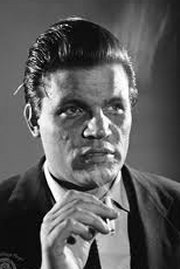
Neville Brand
RETURN TO INDEX |
U.S. Army National Guard
& U.S. Army


 |
American television and movie actor. He used his GI Bill education
assistance to study drama with the American Theater Wing and then
appeared in several
Broadway
plays. His first movie was Port of New York (1949). Among
his earliest films was the Oscar-winning Stalag 17 (1953). His
heavy features and gravelly voice made Brand a natural tough guy. He
played Al Capone in The
George Raft Story (1961),
The Scarface Mob
(1959) (TV), and TV's
"The Untouchables" (1959). Among his other memorable roles are
the sympathetic guard in
Birdman of Alcatraz (1962) and the representative of rioting
convicts in Riot in Cell
Block 11 (1954). Perhaps his best-loved role was that of the
soft-hearted, loud-mouthed, none too bright but very effective Texas
Ranger Reese Bennett of
Backtrack! (1969),
Three Guns for Texas (1968), and TV's
"Laredo" (1965).
He entered the Illinois Army National Guard on October 23, 1939 as a
private in Company F, 129th Infantry Regiment. He then enlisted as
Corporal Neville L. Brand infantryman on March 5, 1941. He trained
at Fort Carson, and served nine months and nineteen days in the Army in
WW2 seeing action with the 331st Infantry Regiment of the 83rd Infantry
Division (Thunderbolt Division) in the Ardennes, Rhineland, and Central
European campaigns. Brand, a sergeant and platoon leader, was
wounded in action along the Weser River on April 7, 1945 for which he
received the Purple Heart. His upper right arm was hit by a
bullet, and he nearly bled to death. He was discharged from
service in October 1945. |
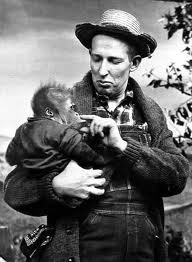
Hugh Brannum
RETURN TO INDEX |
U.S. Marine Corps
 |
American vocalist, arranger, composer and actor best known for his
role as "Mr.
Green Jeans" on the children's television show
Captain Kangaroo.
Served in WW2 and joined a
Marine band led by
Bob
Crosby. |
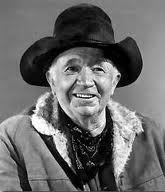
Walter Brennan
RETURN TO INDEX |
U.S. Army
 |
American actor who won the
Academy Award for Best Supporting Actor three times and is tied with
Jack Nicholson
for the most
Academy Award wins for a male actor.
Served as a private with the
101st Field Artillery Regiment in
France during WW1.
|
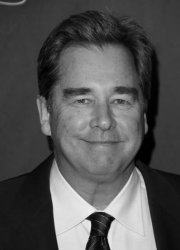
Beau Bridges
RETURN TO INDEX |
U.S. Coast Guard
& U.S. Coast Guard
Reserve
 |
American film and television
actor and director. In 1989, he starred opposite his brother in
perhaps his best known role, as one of
The Fabulous Baker Boys. First appeared in the movie
The Red Pony (1949). In the 1962 to 1963 television season,
Beau along with brother Jeff, appeared on their father's CBS anthology
series,
The Lloyd Bridges Show. Acting via a small role on his father's TV
series Sea Hunt. He made his stage debut in 1966's Where's Daddy
and continued appearing in leading film roles throughout the 1960s and
'70s, easing into character leads. Bridges directed two feature
films, The Wild Pair (1987) and Seven Hours to Judgment (1988). From
1993 to 1994 he appeared with his father in the 15-episode CBS
comedy/western series,
Harts of the West. He had a recurring role in the Showtime
series
Beggars and Choosers (1999 to 2000). On February 8, 2009, he
won a Grammy Award for Best Spoken Word Album.
Enlisted in 1959 and also spent 8 years in the reserves. |
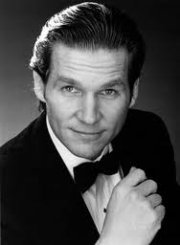
Jeff Bridges
RETURN TO INDEX |
U.S. Coast Guard
 |
American
actor and
musician. Bridges is also a musician, a
photographer, and an occasional vintner and a storyteller. He comes from
a well-known acting family, and worked as a child with his father, Lloyd
Bridges, and brother Beau on television's
Sea Hunt. Some
of his best-known movies include
Tron,
Fearless,
Iron Man,
The Contender,
Starman,
The
Fabulous Baker Boys,
Jagged Edge,
Against All Odds,
The Fisher King,
Thunderbolt and Lightfoot,
Seabiscuit,
Tron: Legacy, and
The Big Lebowski. He won the
Academy Award for Best Actor in a Leading Role at the
82nd Academy
Awards for his role as Otis "Bad" Blake in the 2009 movie
Crazy Heart.
Served in the late 1960s and
as a reservist in the early 1970s. |
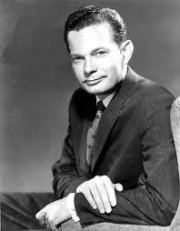
David Brinkley
RETURN TO INDEX |
U.S. Army
 |
American
newscaster for
NBC and
ABC in a career lasting from 1943 to 1997. From 1956 through 1970, he
co-anchored NBC's top rated
nightly
news program, The
Huntley-Brinkley Report, with
Chet Huntley and
thereafter appeared as co-anchor or commentator on its successor,
NBC Nightly News,
through the 1970s. In the 1980s and 1990s, Brinkley was host of the popular
Sunday
This Week with David Brinkley program and a top commentator on election
night coverage for ABC News.
Over the course of his career, Brinkley received ten
Emmy Awards, three George Foster
Peabody Awards, and the
Presidential Medal of Freedom.
Served in WW2. Joined in 1941 and was discharged for medical
reasons in 1943. |

Al Brodax
RETURN TO INDEX |
U.S. Army

 |
American film and television
producer. He was sometimes credited as "Al Broadax." From 1950 to
1960, Brodax helped develop
Your Show of
Shows, Pulitzer Prize Playhouse, and
Omnibus. He joined
King
Features Syndicate in 1960 as the head of their film and television
development department. Brodax oversaw the production of over 200
Popeye shorts in 1960 to 1962. Brodax was also the producer of
King Features' animated revival of
Krazy Kat, as well
as Cool McCool,
Beetle Bailey,
Snuffy Smith, and
Casper
the Friendly Ghost. He was later involved in the production of
the animated Beatles film,
Yellow Submarine, as producer and co-screenwriter.
Served in WW2. Enlisted at the age of eighteen. He was
wounded in action, and was subsequently awarded the Purple Heart, the
Combat Medical Badge, and three battle stars. |
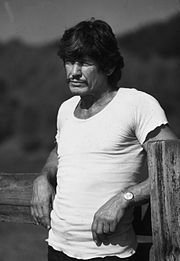
Charles Bronson
RETURN TO INDEX |
U.S. Army Air Forces


 |
American actor best
known for his "tough guy" image. Bronson starred in films such as
Once
Upon a Time in the West,
The
Magnificent Seven,
The Dirty Dozen,
The Great Escape,
Mr. Majestyk,
The Mechanic, and the popular
Death Wish series.
In 1943, Bronson enlisted in the
United States Army Air Forces and served as an aerial gunner in the
760th Flexible Gunnery Training Squadron, and in 1945 as a
B-29 Superfortress crewman with the
39th Bombardment Group based on Guam. He was awarded a
Purple Heart for
wounds received during his service. |
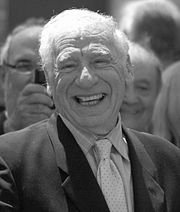
Mel Brooks
RETURN TO INDEX |
U.S. Army

 |
American film
director,
screenwriter,
composer, lyricist,
comedian,
actor and
producer. He is best known as a creator of broad film
farces
and comic
parodies. Brooks is a member of
the short list of entertainers with the distinction of having won an
Emmy, a
Grammy, an
Oscar and a
Tony award. Three of his films ranked in the
American
Film Institute's list of the Top 100 comedy films of all-time:
Blazing Saddles
at number 6,
The Producers at number 11, and
Young
Frankenstein at number 13.
Served as a corporal during
WW2, taking part in the
Battle of the
Bulge. |
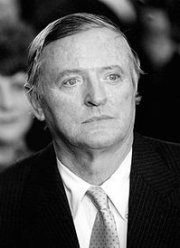
William
F. Buckley, Jr.
RETURN TO INDEX |
U.S. Army
 |
American conservative author and commentator. He founded the
political magazine National Review in 1955, hosted 1,429 episodes of the
television show Firing Line from 1966 until 1999, and was a nationally
syndicated newspaper columnist. He wrote God and Man at Yale
(1951); among over 50 other books on writing, speaking, history, and
politics.
Served in WW2. Upon his graduation from the U.S. Army Officer
Candidate School in 1944, he was commissioned as a second lieutenant.
In his book, Miles Gone By, he briefly recounts being a member of
Franklin Roosevelt's honor guard when the president died. |
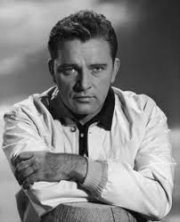
Richard Burton
RETURN TO INDEX |
Royal Air Force


 |
Welsh actor. He was nominated seven times for an
Academy Award,
six of which were for
Best Actor in a Leading Role (without ever winning), and was a
recipient of
BAFTA,
Golden Globe and
Tony Awards for Best Actor. Although never trained as an actor,
Burton was, at one time, the highest-paid actor in
Hollywood.
Served in WW2 (1944 to 1947) as
a navigator. |
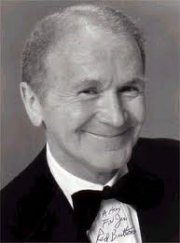
Red Buttons
RETURN TO INDEX |
U.S. Army Air Forces

 |
Academy Award-winning
American comedian and actor.
Drafted in 1943 he appeared
in the Army Air Forces Broadway show
Winged Victory.
A year later he appeared in
Darryl F. Zanuck's
movie version of
Winged Victory, directed by
George Cukor.
He also entertained troops in the
European Theater in the same unit as
Mickey Rooney. |
|

